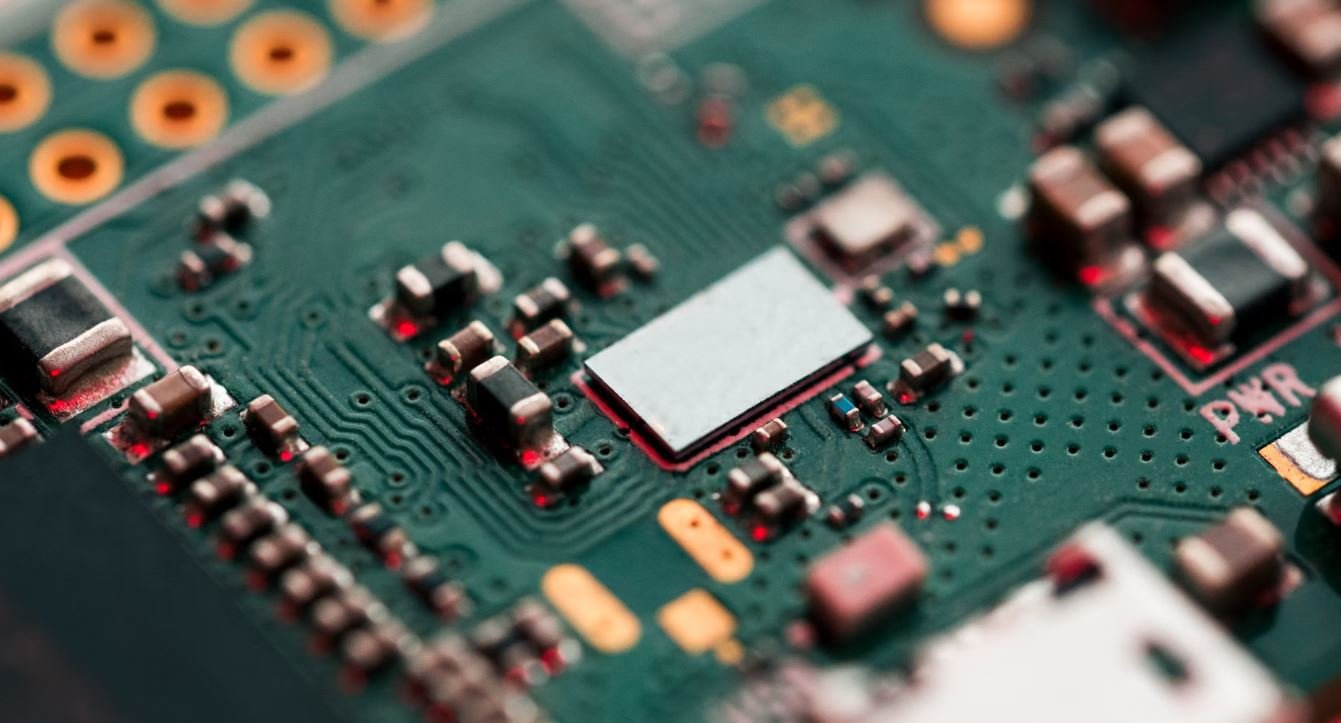AI Now Institute
The AI Now Institute is a research institute that focuses on the social implications of artificial intelligence (AI). It was founded in 2017 and is based at New York University. The institute works towards understanding and addressing the challenges AI presents, including issues of bias, accountability, and the impact on labor and society as a whole.
Key Takeaways:
- The AI Now Institute is a research institute focused on the social implications of AI.
- Founded in 2017, the institute aims to address challenges such as bias and accountability in AI systems.
- They work towards understanding the impact of AI on labor and society at large.
The rapid development of AI technologies in recent years has brought both promises and concerns. While AI has the potential to revolutionize various industries and improve efficiency, it also introduces new challenges and risks. The AI Now Institute aims to shed light on these issues and generate actionable insights to guide policymakers, practitioners, and the public alike.
As AI continues to advance, it is crucial to address the social, ethical, and economic implications it poses.
The work of the AI Now Institute encompasses interdisciplinary research, policy analysis, and civic engagement. They collaborate with scholars, industry leaders, and policymakers to ensure that AI technologies are developed and deployed ethically and responsibly. Their research covers a wide range of topics, including surveillance technologies, automated decision-making, and AI in the workplace.
Ethical Considerations in AI Development
The AI Now Institute emphasizes the need for transparency, accountability, and fairness in AI systems. One of their main concerns is the presence of biases in AI algorithms, which can perpetuate social inequalities and reinforce discriminatory practices. The institute advocates for the establishment of rigorous auditing processes and the inclusion of diverse perspectives in the development and deployment of AI technologies.
Awareness and mitigation of biases in AI systems are fundamental to ensuring fairness and equity in their application.
Tables:
| AI Now Institute Research Areas |
|---|
| Surveillance technologies |
| Automated decision-making |
| AI in the workplace |
AI Now Institute Research Areas
- Surveillance technologies
- Automated decision-making
- AI in the workplace
Moreover, the AI Now Institute advocates for the right to explanation, especially when AI systems are used to make critical decisions that impact individuals’ lives. They argue that users should have access to meaningful information about how decisions are made and the reasoning behind them. This transparency not only promotes accountability but also helps to build trust in AI technologies.
Transparency and explainability in AI systems empower individuals and foster trust in their application.
The institute also addresses the impact of AI on labor and workers’ rights. As AI technologies are increasingly integrated into various industries, there are concerns about job displacement, surveillance of workers, and the exacerbation of inequalities. The AI Now Institute advocates for policies that prioritize worker protection, fair compensation, and collaboration between humans and AI systems.
Collaboration between humans and AI can lead to more equitable and inclusive workplaces.
Tables:
| AI Now Institute Policy Recommendations | Benefits |
|---|---|
| Worker protection | Inclusive workplaces |
| Fair compensation | Collaboration with AI systems |
AI Now Institute Policy Recommendations
- Worker protection
- Fair compensation
- Inclusive workplaces
- Collaboration with AI systems
In conclusion, the AI Now Institute plays a crucial role in examining the social implications of AI and advocating for ethical and responsible AI development. Their interdisciplinary research, policy analysis, and civic engagement help shape the conversation around AI, ensuring that it aligns with societal values and contributes to a more just and equitable future.

Common Misconceptions
Misconception #1: AI will replace humans in every job
One of the common misconceptions about AI is that it will completely replace humans in every job, leading to widespread unemployment. However, this is not entirely accurate. While AI has the potential to automate certain tasks and roles, it is unlikely to completely replace human workers. AI is best suited for tasks that involve repetitive, predictable patterns, but it lacks the creativity, judgment, and emotional intelligence that humans possess.
- AI can automate routine tasks and free up humans to focus on more complex and creative aspects of their job.
- Jobs that require social interactions, empathy, or critical thinking are less likely to be automated by AI.
- Collaboration between humans and AI can lead to improved productivity and innovation.
Misconception #2: AI is infallible and always unbiased
Another common misconception is that AI systems are completely infallible and unbiased. However, AI systems are created by humans and are susceptible to inheriting the biases and limitations of their human creators. Bias in AI systems can occur due to biased training data, flawed algorithms, or human involvement in the design process. It is crucial to critically evaluate and address bias in AI systems to avoid perpetuating discrimination or unfairness.
- AI systems can reflect and amplify biases present in society if not properly addressed.
- Regular monitoring and auditing of AI systems are necessary to identify and mitigate biases.
- Promoting diversity and inclusion in AI development teams can help reduce bias in AI algorithms and systems.
Misconception #3: AI is superintelligent and can solve any problem
There is a misconception that AI possesses superintelligence and can solve any problem presented to it. However, while AI has made remarkable advancements, it still has limitations. AI systems are designed to perform specific tasks and are only as intelligent as the data they are trained on. They cannot easily transfer knowledge from one domain to another or generalize well outside their training data.
- AI systems are specialized and excel in narrow domains but may struggle with new or unfamiliar situations.
- No current AI system exhibits true general intelligence comparable to human intelligence.
- Continued research and development are necessary to advance AI capabilities and address its limitations.

Introduction
This article examines the findings of the AI Now Institute, which is a leading research institute dedicated to studying the social implications of artificial intelligence (AI). Through rigorous analysis and data collection, the institute provides insights into the impact AI has on different aspects of society. In this article, we present ten tables that highlight various points, data, and other elements discovered by the AI Now Institute.
Table 1: Gender Representation in AI Workforce
The table showcases the representation of genders in the AI workforce. It emphasizes the need for diversity and equal opportunities in the industry to foster innovation and avoid biases in AI algorithms.
Table 2: AI Ethics Guidelines by Major Tech Companies
This table provides an overview of the ethical guidelines released by major tech companies regarding the development and deployment of AI. It reflects the increasing importance placed on responsible AI practices and the recognition of potential risks.
Table 3: AI-Generated Deepfake Videos Online
Here, the table presents the alarming increase in the number of AI-generated deepfake videos available online. This underscores the urgent need for robust detection methods and regulations to mitigate the potential harm caused by manipulated media.
Table 4: Impact of AI in Healthcare
This table highlights the positive impact of AI in healthcare, from improved diagnostics to personalized treatment. By harnessing the potential of AI, the healthcare sector can enhance patient care, reduce costs, and advance medical research.
Table 5: AI in Criminal Justice System
Showcasing the involvement of AI in the criminal justice system, this table sheds light on the potential biases in machine learning algorithms used for sentencing and predictive policing. It emphasizes the importance of accountability and transparency in these systems.
Table 6: AI Funding by Country
This table demonstrates the distribution of AI funding across different countries. It highlights the global competition in AI research and development, showcasing the leaders in investment and innovation.
Table 7: AI Applications in Transportation
Highlighting the wide-ranging applications of AI in transportation, this table illustrates how AI is revolutionizing autonomous vehicles, traffic management systems, and logistics optimization. The data emphasizes the potential for greener, more efficient transportation systems.
Table 8: AI Impact on Employment
This table explores the impact of AI on employment, showcasing both the creation and displacement of jobs. It underscores the need for reskilling and upskilling programs to ensure a smooth transition in the workforce.
Table 9: AI Bias in Facial Recognition
Providing examples of AI bias in facial recognition technology, this table reveals disparities in accuracy across different racial and gender groups. It highlights the necessity of addressing such biases to ensure fairness and avoid discriminatory practices.
Table 10: AI in Education
Illustrating various AI applications in the field of education, this table showcases adaptive learning platforms, intelligent tutoring systems, and personalized educational content. It highlights the potential for AI to enhance the learning experience and cater to individual needs.
Conclusion
As the AI field rapidly advances, the findings presented by the AI Now Institute demonstrate the urgent need for responsible development and deployment of AI technologies. The tables presented in this article offer a glimpse into the profound impact AI has on different aspects of society, ranging from gender representation in the workforce to concerns over biases and ethics. By leveraging this verified data and information, policymakers, industry leaders, and researchers can work together to address the challenges and shape a future where AI benefits all of humanity.
Frequently Asked Questions
What is the AI Now Institute?
The AI Now Institute is an independent research institute dedicated to studying the social implications of artificial intelligence (AI). It focuses on understanding and addressing the challenges AI poses to society, including issues of fairness, accountability, transparency, and justice.
Who founded the AI Now Institute?
The AI Now Institute was founded by Kate Crawford and Meredith Whittaker in 2017. They brought together a team of interdisciplinary researchers and experts to investigate the social, economic, and political impacts of AI technologies.
What are the main research areas of the AI Now Institute?
The AI Now Institute conducts research in various areas related to AI, including biased and discriminatory AI systems, the impact of AI on labor and automation, the use of AI in criminal justice systems, AI in healthcare, and the effects of AI on democracy and human rights.
How does the AI Now Institute work?
The AI Now Institute conducts research through collaborations with academic institutions, policymakers, civil society organizations, and industry stakeholders. It engages in interdisciplinary research projects, convenes conferences and workshops, and provides recommendations for policymakers and industry leaders based on its findings.
What is the purpose of the AI Now Institute’s research?
The main purpose of the AI Now Institute’s research is to generate knowledge and insights about the societal implications of AI technologies. Its research aims to inform policy debates, develop ethical guidelines for AI development and deployment, and promote transparency and accountability in the use of AI systems.
Does the AI Now Institute provide policy recommendations?
Yes, the AI Now Institute provides policy recommendations based on its research findings. It aims to inform policymakers about the risks and challenges associated with AI technologies and proposes guidelines and regulations to ensure the responsible and ethical use of AI in various domains.
How does the AI Now Institute promote diversity and inclusion in AI research?
The AI Now Institute recognizes the importance of diversity and inclusion in AI research and actively works towards promoting it. It emphasizes the need for diverse perspectives in understanding and addressing the social impacts of AI. The institute also supports initiatives and programs to increase the participation of underrepresented groups in AI research and development.
Can individuals or organizations collaborate with the AI Now Institute?
Yes, the AI Now Institute welcomes collaborations with individuals and organizations interested in the social implications of AI. It encourages researchers, policymakers, industry professionals, and civil society organizations to contribute to its research projects, share their expertise, and engage in dialogue on AI ethics and policy.
How can I stay updated with the AI Now Institute’s research and activities?
You can stay updated with the AI Now Institute’s research and activities by visiting its official website and subscribing to its newsletter. The institute also regularly publishes reports, articles, and policy briefs, which you can access on its website. Additionally, you can follow the institute on social media platforms to receive updates on its latest research findings and events.
Does the AI Now Institute offer educational resources or training?
Yes, the AI Now Institute offers educational resources and training programs related to the social implications of AI. These resources may include online courses, webinars, workshops, and educational materials for policymakers, industry professionals, and the general public. You can find more information about these resources on the institute’s website.




